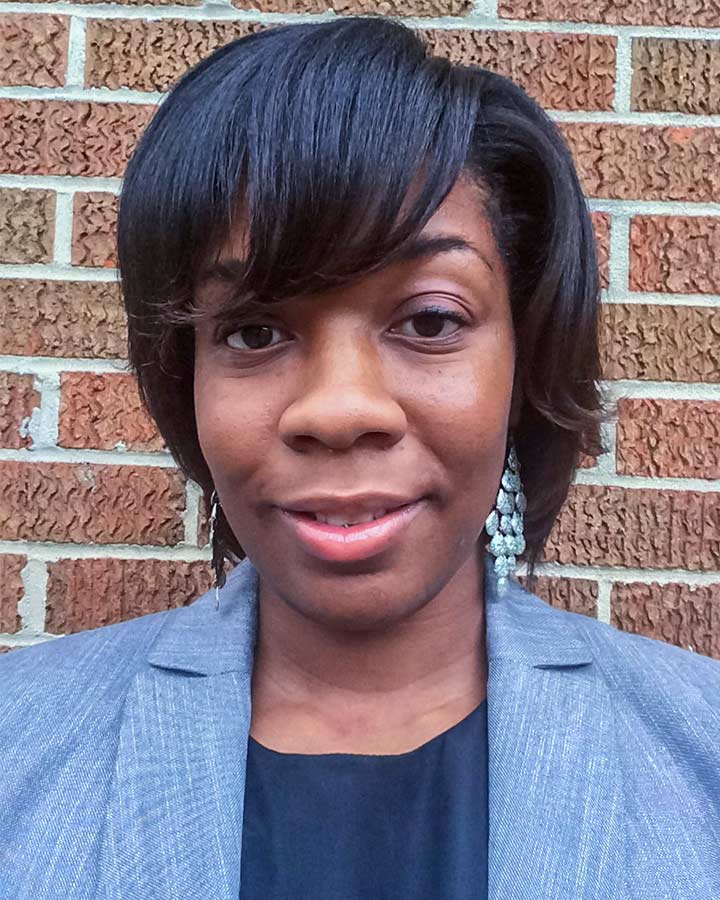
As a Staff Attorney for the Southern Poverty Law Center, Latasha L. McCrary (’08) works on behalf of more than 24,000 individuals incarcerated in Alabama’s prisons.
The SPLC, a civil rights organization based in Montgomery, filed a federal lawsuit against the Alabama Department of Corrections in 2014, claiming the department doesn’t provide adequate medical and mental health care. The SPLC lawsuit alleges that persons who have been incarcerated in state prisons have received delayed care for medical conditions, and that those who need care for mental illnesses have received little or no treatment.
“When people do not receive preventative care or proper care, then they keep needing more care. The more care they need, the more that care actually costs” McCrary said. “If you treat early and treat appropriately, that’s going to save money in the long run.”
The medical portion of the case is expected to go to trial next year, while the mental health portion is scheduled for trial in December. The Alabama Disabilities Advocacy Program joined the case, claiming the prison system discriminates against inmates with disabilities, and the matter has been settled. The department of corrections has agreed to outline steps it will take to ensure its prisons and policies comply with the Americans with Disabilities Act.

“The department had no way of tracking people with disabilities,” McCrary said. “It also had no grievance system, and those are required by the ADA.”
Fighting for those who cannot wage a battle themselves has long been a goal for McCrary. She decided to go to law school after she took constitutional law and civil rights courses at the University of Alabama in Huntsville and couldn’t believe how the rights of individuals were being violated. During her senior year, she took the LSAT and applied to law school. She wanted to stay close to home and remain in Alabama after graduation. When she was accepted to UA, there was no doubt where she would attend.
McCrary said Professors Gene Marsh and Bryan Fair influenced her career. Marsh told his students it was a privilege to be in law school and that they should not take it for granted, while Fair engaged her in conversations about constitutional law and civil rights, as well as encouraging McCrary, the mother of a 2-year-old daughter when she started law school, that she could successfully complete the degree.
McCrary has achieved success despite some challenges as a child and a young adult, which is why the Rev. T. C. Johnson, pastor of St. Luke Christian Church in Huntsville, describes her as the “epitome of perseverance.”
“She‘s the kind of person who walks on trouble really well, and the reason for that is her faith,” Johnson said. “She doesn’t sink down in the storms. They’re there, but she doesn’t let them dictate who she can be, what she can become.”
After she graduated, McCrary worked as a volunteer in Huntsville as an attorney for Legal Services of Alabama and for the Office of Chief Counsel at the Marshall Space Flight Center. In 2009, she opened her own practice, where she focused on general law and criminal defense for five years.
At the SPLC, McCrary is the first UA Law School graduate hired as a staff attorney since the center was founded in 1971. While founders Morris Dees (’60) and Joseph Levin, Jr. (’66) are both graduates of the Law School, no UA Law graduates had been hired to work as staff attorneys at the SPLC before McCrary joined the staff in July 2014, said Maria Morris, Senior Supervising Attorney for the SPLC.
It was McCrary’s extensive experience with the prison system and the criminal justice system in Alabama that helped her land the position.
“When I saw what she had on her resume, and the skill set and knowledge she brought with her, it seemed very clear to me she would add something different than someone who had been doing similar types of work in a different place, and she has,” Morris said.
In January, McCrary delivered the keynote address at the Dr. Martin Luther King, Jr., Commemoration Program at the University of Alabama in Huntsville.
McCrary was honored to be chosen as the keynote speaker and she used the opportunity to remind those in the audience that Alabama’s constitution, adopted in 1901 as a way to disenfranchise African-Americans and poor whites, continues to affect the state. For example, about 30 percent of the residents of Alabama are people of color, while more than 60 percent of people incarcerated in the state’s prisons are people of color.
“So, we certainly believe that what has happened in the past is having a current impact on the future of our state,” she said.
It’s just one of the reasons McCrary is dedicated to serving Alabama. She keeps the needs of the most vulnerable population in mind as she works to protect it. As the only Alabama native working on the case against the Alabama Department of Corrections, McCrary has given a lot of thought and consideration to how her work will affect the state’s residents.
“This is my home,” she said. “These are my neighbors.”